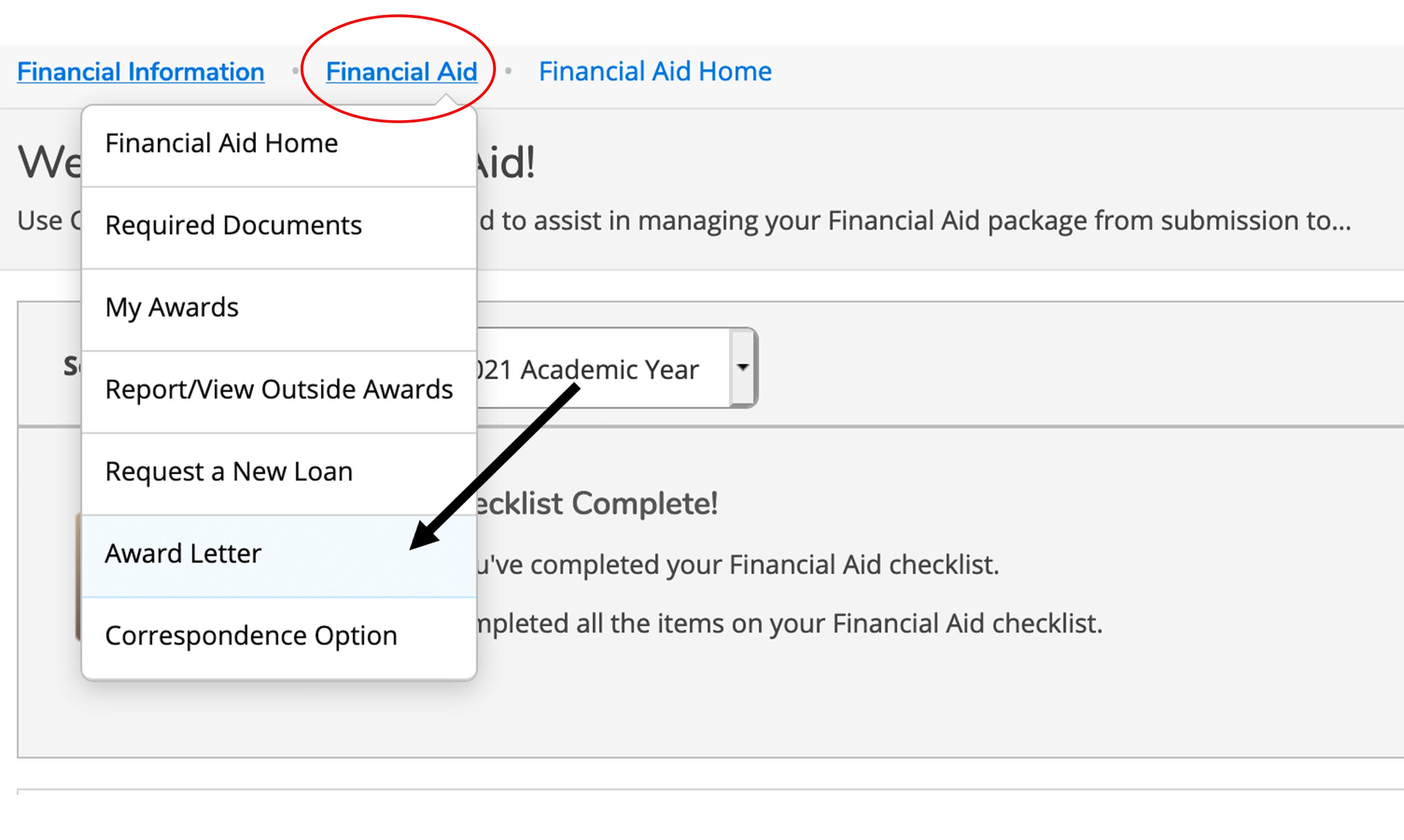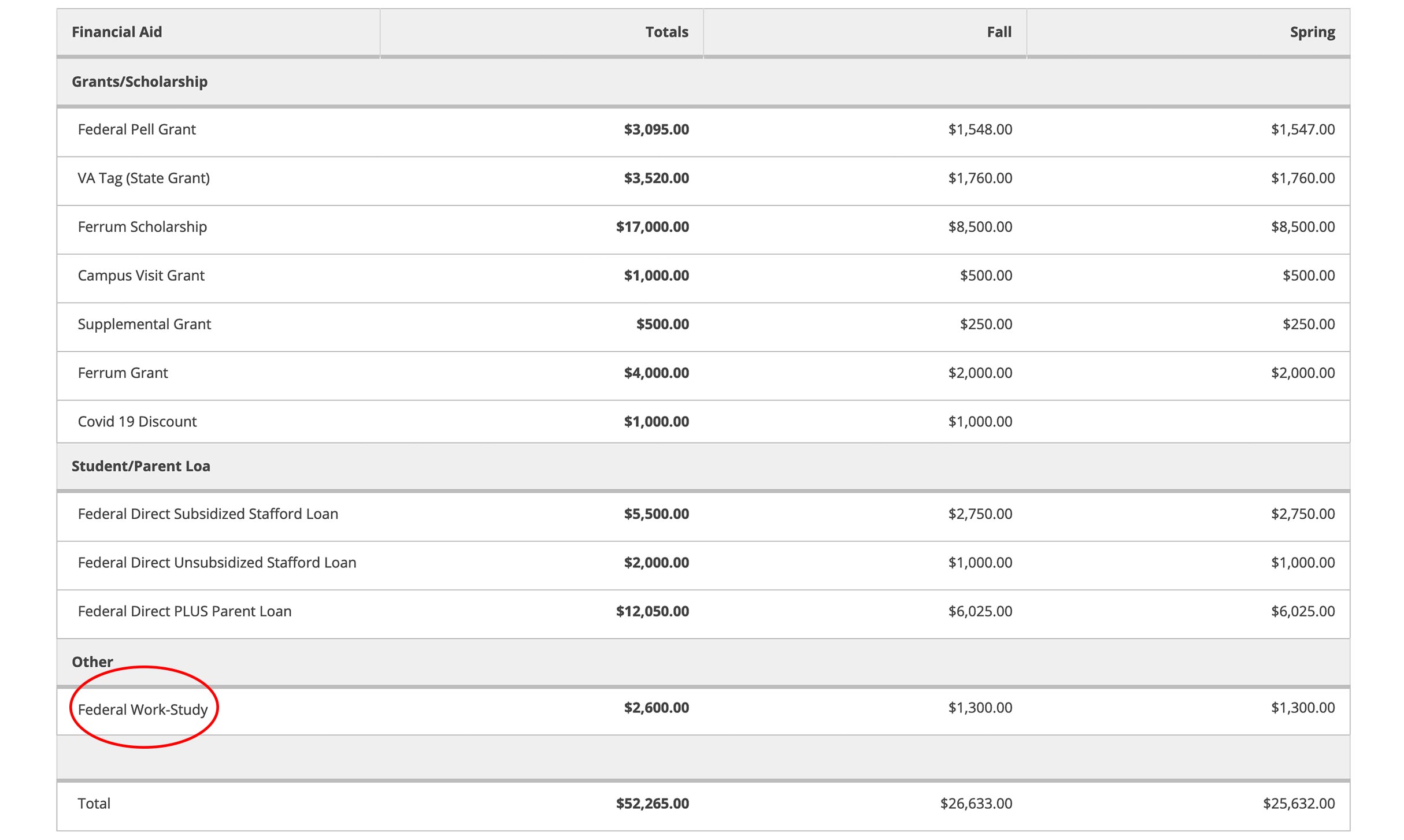
The Office of Human Resources handles all employee recruitment, continued employment, classification and compensation, benefits, personnel policies, and training and development.
Ferrum College will provide an ID card to all eligible individuals who need access to Ferrum College services or as proof of being associated with the College.
Card Services is located in Franklin Hall 106.
Normal office hours are 8:30 a.m. – 5:00 p.m., Monday through Friday.
Eligibility
Replacement Card Cost
The cost of a replacement card is $45.
In addition, if you wish to add money to your ID card, please make an appointment with Student Accounts by calling 540-365-4239 or by email at stacctm@ferrum.edu. For departments wishing to add money to their departmental card, contact Ms. Lori Feazell by emailing lfeazell@ferrum.edu or calling 540-365-4246.
Ferrum College utilizes the Handshake application to post jobs to our students. This year, we are posting all of our work-study positions in the Handshake system. All current students have been uploaded into the Handshake system. Please read through the following instructions on how to…
Activating your Handshake account:
Searching for Work-Study positions:
Applying for a position:
What to expect after you apply:
NOTE: There is a Handshake app you can download after you activate your account. You can find further information by reading the article: About Handshake Mobile for iOS and Android
Please contact Leslie Holden, director of Career Services, at lholden@ferrum.edu, for assistance.
Hiring Process, once your application has been submitted:
If you have not previously worked at Ferrum College, you must complete the following prior to beginning work:
*It is a federal requirement for employment that you provide original UNEXPIRED documents to verify your identity and your authorization to work in the United States. You will not be permitted to work until you submit the required original documents.
To view your Financial Aid award letter online,
You will be taken to a new tab that will display your financial Aid checklist. To view your award letter, click on the Financial Aid tab to allow a drop-down menu from which you can select Award Letter.

Your award letter will show any grants/scholarships, loans, and work study if it has been awarded. The letter will show you how much you have been awarded and how it is split up for each semester.

The work-study award amounts per academic year vary based on each student’s financial aid need. For example, if your award is $2600.00 for the year, you need to work 179 hours per semester which is an average of 13 hours per week. The supervisor will schedule your work hours around your class schedule.
Treatment: Generally, and as you would expect, the Plan is permitted to disclose your PHI for purposes of your medical treatment. Thus, it may disclose your PHI to doctors, nurses, hospitals, emergency medical technicians, pharmacists and other health care professionals where the disclosure is for your medical treatment. For example, if you are injured in an accident, and it’s important for your treatment team to know your blood type, the Plan could disclose that PHI to the team in order to allow it to more effectively provide treatment to you.
Payment: Of course, the Plan’s most important function, as far as you are concerned, is that it pays for all or some of the medical care you receive (provided the care is covered by the Plan). In the course of its payment operations, the Plan receives a substantial amount of PHI about you. For example, doctors, hospitals, and pharmacies that provide you care send the Plan detailed information about the care they provided so that they can be paid for their services. The Plan may also share your PHI with other plans in certain cases. For example, if you are covered by more than one health care plan (e.g., covered by this Plan, and your spouse’s plan, or covered by the plans covering your father and mother), we may share your PHI with the other plans to coordinate payment of your claims.
Health care operations: The Plan may use and disclose your PHI in the course of its “health care operations.” For example, it may use your PHI to evaluate the quality of services you received or disclose your PHI to an accountant or attorney for audit purposes. In some cases, the Plan may disclose your PHI to insurance companies for purposes of obtaining various insurance coverage.
The law provides that the Plan may use and disclose your PHI without authorization in the following circumstances:
To the Plan Sponsor: The Plan may disclose PHI to the employers (such as Ferrum College) who sponsor or maintain the Plan for the benefit of employees and dependents. However, the PHI may only be used for limited purposes, and may not be used for purposes of employment-related actions or decisions or in connection with any other benefit or employee benefit plan of the employers. PHI may be disclosed to: the human resources or employee benefits department for purposes of enrollments and dis-enrollments, census, claim resolutions, and other matters related to Plan administration; the payroll department for purposes of ensuring appropriate payroll deductions and other payments by covered persons for their coverage; information technology department, as needed for preparation of data compilations and reports related to Plan administration; finance department for purposes of reconciling appropriate payments of premium to and benefits from the Plan, and other matters related to Plan administration; internal legal counsel to assist with resolution of claim, coverage and other disputes related to the Plan’s provision of benefits.
Required by law: The Plan may disclose PHI when a law requires that it report information about suspected abuse, neglect, or domestic violence, or relating to suspected criminal activity, or in response to a court order. It must also disclose PHI to authorities that monitor compliance with these privacy requirements.
For public health activities: The Plan may disclose PHI when required to collect information about disease or injury or to report vital statistics to the public health authority.
For health oversight activities: The Plan may disclose PHI to agencies or departments responsible for monitoring the health care system for such purposes as reporting or investigation of unusual incidents.
Relating to decedents: The Plan may disclose PHI relating to an individual’s death to coroners, medical examiners, or funeral directors and to organ procurement organizations relating to organ, eye, or tissue donations or transplants.
For research purposes: In certain circumstances, and under strict supervision of a privacy board, the Plan may disclose PHI to assist medical and psychiatric research.
To avert threat to health or safety: In order to avoid a serious threat to health or safety, the Plan may disclose PHI as necessary to law enforcement or other persons who can reasonably prevent or lessen the threat of harm.
For specific government functions: The Plan may disclose PHI of military personnel and veterans in certain situations, to correctional facilities in certain situations, to government programs relating to eligibility and enrollment, and for national security reasons.
Uses and Disclosures Requiring Authorization: For uses and disclosures beyond treatment, payment, and operations purposes and for reasons not included in one of the exceptions described above, the Plan is required to have your written authorization. Your authorizations can be revoked at any time to stop future uses and disclosures, except to the extent that the Plan has already undertaken an action in reliance upon your authorization.
Uses and Disclosures Requiring You to Have an Opportunity to Object: The Plan may share PHI with your family, friend, or other person involved in your care or payment for your care. We may also share PHI with these people to notify them about your location, general condition, or death. However, the Plan may disclose your PHI only if it informs you about the disclosure in advance and you do not object (but if there is an emergency situation and you cannot be given your opportunity to object, disclosure may be made if it is consistent with any prior expressed wishes and disclosure is determined to be in your best interests; you must be informed and given an opportunity to object to further disclosure as soon as you are able to do so).
You have the following rights relating to your protected health information:
To request restrictions on uses and disclosures: You have the right to ask that the Plan limit how it uses or discloses your PHI. The Plan will consider your request but is not legally bound to agree to the restriction. To the extent that it agrees to any restrictions on its use or disclosure of your PHI, it will put the agreement in writing and abide by it except in emergency situations. The Plan cannot agree to limit uses or disclosures that are required by law.
To choose how the Plan contacts you: You have the right to ask that the Plan send you information at an alternative address or by an alternative means. The Plan must agree to your request as long as it is reasonably easy for it to accommodate the request.
To inspect and copy your PHI: Unless your access is restricted for clear and documented treatment reasons, you have a right to see your PHI in the possession of the Plan or its vendors if you put your request in writing. The Plan, or someone on behalf of the Plan, will respond to your request, normally within 30 days. If your request is denied, you will receive written reasons for the denial and an explanation of any right to have the denial reviewed. If you want copies of your PHI, a charge for copying may be imposed but may be waived, depending on your circumstances. You have a right to choose what portions of your information you want copied and to receive, upon request, prior information on the cost of copying.
To request amendment of your PHI: If you believe that there is a mistake or missing information in a record of your PHI held by the Plan or one of its vendors, you may request, in writing, that the record be corrected or supplemented. The Plan or someone on its behalf will respond, normally within 60 days of receiving your request. The Plan may deny the request if it is determined that the PHI is: (i) correct and complete; (ii) not created by the Plan or its vendor and/or not part of the Plan’s or vendor’s records; or (iii) not permitted to be disclosed. Any denial will state the reasons for the denial and explain your rights to have the request and denial, along with any statement in response that you provide, appended to your PHI. If the request for amendment is approved, the Plan or vendor, as the case may be, will change the PHI, so inform you and tell others who need to know about the change in the PHI.
To find out what disclosures have been made: You have a right to get a list of when, to whom, for what purpose, and what portion of your PHI has been released by the Plan and its vendors, other than instances of disclosure for which you gave authorization, or instances where the disclosure was made to you or your family. In addition, the disclosure list will not include disclosures for treatment, payment, or healthcare operations. The list also will not include any disclosures made for national security purposes to law enforcement officials or correctional facilities or before the date the federal privacy rules applied to the Plan. You will normally receive a response to your written request for such a list within 60 days after you make the request in writing. Your request can relate to disclosures going as far back as six years. There will be no charge for up to one such list each year. There may be a charge for more frequent requests.
If you think the Plan or one of its vendors may have violated your privacy rights, or if you disagree with a decision made by the Plan or a vendor about access to your PHI, you may file a complaint with the person listed in the section immediately below. You also may file a written complaint with the Secretary of the U.S. Department of Health and Human Services. The law does not permit anyone to take retaliatory action against you if you make such complaints.
Contact Person for Information or to Submit a Complaint.
If you have questions about this Notice, please contact the Plan’s Privacy Official or Deputy Privacy Official(s) (see below). If you have any complaints about the Plan’s privacy practices or handling of your PHI, please contact the Plan’s Privacy Official (see below).
Privacy Official
The Plan’s Privacy Official, the person responsible for ensuring compliance with this Notice, is:
Bobby W. Thompson, Senior Vice President & Treasurer, (540) 365-4233
The Plan’s Deputy Privacy Official(s) is/are:
Melanie B. Shandor, Director Of Human Resources, (540) 365-4235
Linda P. Edwards, Assistant Director Of Human Resources, (540) 365-4244
Organized Health Care Arrangement Designation
The Plan participates in what the federal privacy rules call an “Organized Health Care Arrangement.” The purpose of that participation is that it allows PHI to be shared between the members of the Arrangement, without authorization by the persons whose PHI is shared, for healthcare operations. Primarily, the designation is useful to the Plan because it allows the insurers who participate in the Arrangement to share PHI with the Plan for purposes such as shopping for other insurance bids.
The members of the Organized Health Care Arrangement are:
Effective Date
The effective date of this Notice is: April 14, 2004.
Ferrum College is an Equal Opportunity Employer and Educator. In accordance with all federal, state, and local laws, it is the policy of the College not to discriminate against any employee or applicant for employment in hiring, promotion, pay, benefits, classification, referral, or termination of employment or in any other aspects of employment.
For Healthcare Transparency in Coverage information use the below link and EIN 27-1367957.



